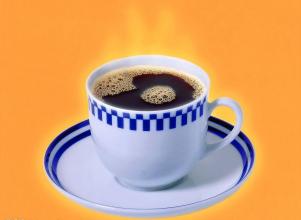Characteristics of Antigua Coffee beans in Guatemala Coffee Manor
The three majestic volcanoes Agua, Acatenango and Fuego surround the Antigua Valley. Every once in a while, Fuego-- one of Guatemala's three active volcanoes adds fresh, mineral-rich ash to the soil of Antigua. The volcanic pumice in the soil can keep the soil moist, greatly making up for the lack of precipitation in Antigua, which is the least rainy of the eight coffee-producing regions in Guatemala.
Like all Guatemalan boutique coffee, Antigua coffee is grown in shade. In Antigua, shade is mainly used to protect coffee trees from frost, which is cold and sometimes frosty from December to February every year. Dense shade and extremely shallow aquifers work together to create a unique micro-climate for the coffee trees living in it.
Cup reviews of Antigua coffee:
Aroma 7.8; flavor 7.85; acidity 7.95; balance 7.63; overall 7.78; alcohol 7.85; aftertaste 7.60
Delicate, well-balanced, rich aroma and excellent sweetness the extremely high pumice (pumice) in Antigua soil (from the active Fuaigo volcano Fuego) keeps the humidity stable at 65% all the year round, which is very different from other volcanic coffee producing areas, where the humidity is usually very different from the dry and wet seasons.
Fertile volcanic soil, low humidity, plenty of sunshine and cool nights all make up the unique Antigua Valley (Antigua Valley) in the Antigua region, which is the oldest and best-known coffee producing area in Guatemala. Volcanoes and extremely shallow groundwater levels form a dry microclimate, characterized by low humidity, adequate sunshine and cool nights.
Antigua is a closed valley surrounded by three volcanoes: Agua, Acatenango and Fuego. Antigua is flat and slightly sloping, unlike other coffee producers located in volcanic areas.
Most coffee trees are planted in the hinterland of the valley; even so, they have reached 5000 feet above sea level; in addition, some farmers plant coffee on the slopes of volcanoes, nearly 5600 feet above sea level

Important Notice :
前街咖啡 FrontStreet Coffee has moved to new addredd:
FrontStreet Coffee Address: 315,Donghua East Road,GuangZhou
Tel:020 38364473
- Prev

An introduction to the characteristics of Balinese Coffee Flavor Manor
Bali Coffee is a tone, a harmony and a song. She is the beat of the waves on the coast of Kuta, the beat of Mozart drums and the chirping of aristocratic people in the cafe. Bali is one of the most beautiful and distinctive tourist attractions in the world, with its unique natural scenery, ancient civilization, unique local folk art and beautiful beaches.
- Next

Taste of Mexican Coffee Flavor Manor area introduces Mexican boutique coffee beans
Let the milk dry for about 5 minutes, wait until the milk is slightly cool, then pour into the prepared coffee, decorate the coffee surface with cold cream, then decorate with a piece of cinnamon, and the Mexican coffee is ready. The aromas of chocolate and cinnamon blend together to give off the smell of desert. Tasting such a cup of coffee, you seem to be walking among the gray-green cactus in the Mexican desert.
Related
- Detailed explanation of Jadeite planting Land in Panamanian Jadeite Manor introduction to the grading system of Jadeite competitive bidding, Red bid, Green bid and Rose Summer
- Story of Coffee planting in Brenka region of Costa Rica Stonehenge Manor anaerobic heavy honey treatment of flavor mouth
- What's on the barrel of Blue Mountain Coffee beans?
- Can American coffee also pull flowers? How to use hot American style to pull out a good-looking pattern?
- Can you make a cold extract with coffee beans? What is the right proportion for cold-extracted coffee formula?
- Indonesian PWN Gold Mandrine Coffee Origin Features Flavor How to Chong? Mandolin coffee is American.
- A brief introduction to the flavor characteristics of Brazilian yellow bourbon coffee beans
- What is the effect of different water quality on the flavor of cold-extracted coffee? What kind of water is best for brewing coffee?
- Why do you think of Rose Summer whenever you mention Panamanian coffee?
- Introduction to the characteristics of authentic blue mountain coffee bean producing areas? What is the CIB Coffee Authority in Jamaica?

